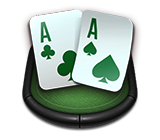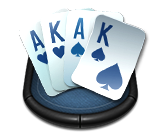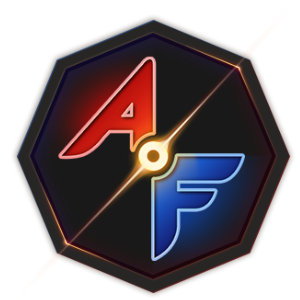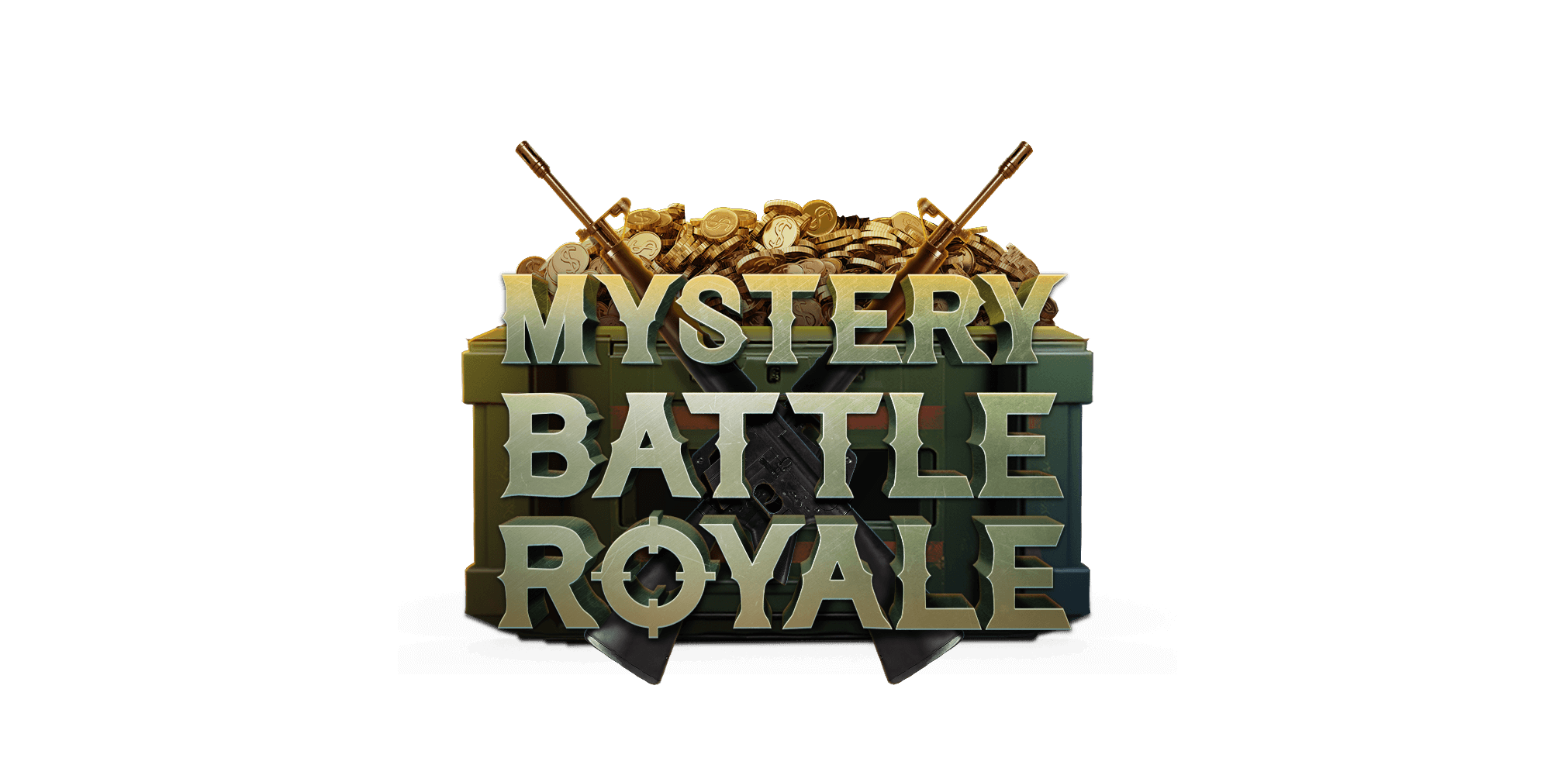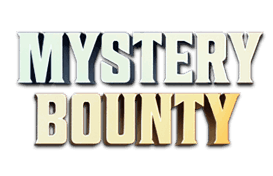-
Poker Terms and Definitions

Poker Terminology: Learn Important Poker Terms and Phrases
Although poker is a relatively straightforward game to learn, the more you play, the more you’ll start to notice how complex it can actually be. To master poker, you’ll need to learn all the ins and outs of the gameplay, have a keen eye, learn some basic maths, and know when and how to bluff. And that’s only the tip of the iceberg. To truly master the game, you’ll also need to learn some standard poker lingo.
Mastering the poker talk can make a massive difference whether you’re playing online or at a brick-and-mortar casino. And to help you take the next step in your poker journey, we’ve compiled a list of the most important poker terms and phrases. Go through our comprehensive guide to poker terminology and start talking like a real poker pro.
A
Ace High: A situation when one of the hole cards is an Ace (also referred to as Ace in the hole).
Action: Refers to possible actions a player can take. In poker, a player can bet, check, call, raise, or fold.
Action Card: A card that causes a significant betting action when it appears on the board, helping two or more players.
Aces Up: Two pairs where one of which is a pair of Aces.
Add-On: The number of chips that a player can add to their stack before busting.
A-Game: It means a player is ‘in the zone,’ which refers to playing the game with an optimal mindset.
Aggression Factor (AF): It measures the number of aggressive actions, betting or raising, taken for each passive action, such as calling.
Air: A hand that has a very low value compared to another player’s hand, for example, seven high.
All-In: An act of putting all the player’s chips into the pot.
Angle: Manipulation of the rules to gain an unfair advantage. An example of angle shooting is acting out of turn.
Ante: A bet all players are required to make before the dealer deals the hand. Ante is used to create a seed pot, giving it value from the beginning of the game.
Any Two Cards: A poker term used in Texas Hold’em to indicate that a player’s hole cards don’t matter in a specific situation.
B
Backdoor: A draw that requires two rounds or more rounds to complete. For instance, if you’re dealt two spades, one spade appears on the flop and then shows up on the turn or river, it means you’ve completed a ‘backdoor’ flush.
Backraise: It occurs when a player re-raises after making a call in the same betting round.
Bad Beat: It happens when a player with a superior hand loses due to being unlucky on the flop, turn, or river.
Balance: Playing various hands in the same way to make it more difficult for other players to gain information on your hole cards.
Bankroll: It’s the total amount of money a player has when at the poker table.
Bet: Money a player wagers at the beginning of each betting round.
Big Bet: It refers to the larger of the two bets made by a player in a fixed-limit poker game.
Big Blind: The position at the poker table second left to the dealer, which requires a player to pay a mandatory preflop amount at the beginning of the first betting round.
Blank: A card that doesn’t impact the game meaningfully (typically a low card).
Blind: A mandatory bet made by the first two players sitting left to the dealer. A player sitting directly next to the dealer is called a small blind, whereas the next is a big blind.
Blocker: A card that ‘blocks’ another player’s possible range - holding one of another player’s outs.
Bluff: Raising a bet with inferior cards hoping for an opponent to fold their stronger hand
Board: All the community cards that appear in Texas Hold’em at the beginning of each betting round - the flop, turn, and river.
Boat: Another poker term for a full house.
Bottom Pair: A pair with the lowest card on the board. For instance, if you have a hand of A-2 and the flop comes 2-6-7, you have flopped the bottom pair of 2-2.
Bounty: A prze a player can collect by eliminating their opponent in a poker tournament.
Brick: A card that doesn’t complete any possible draw.
Broadway: A poker term to describe any card from 10 to Ace.
Bubble: A player who finishes the tournament just out of the money.
Burn: In live poker games, dealers always discard the first card from the deck and put it face down. This action is called burning and occurs before each betting round.
Button: The button indicates the dealer’s position. Being a dealer in poker provides an advantage as it’s a player who ends the betting round.
Buy-In: The amount of money each player has to pay to enter the game. This amount might vary in cash games (for example, various online poker rooms can have different buy-in amounts) but is typically fixed in poker tournaments.
C
Call: Calling means matching the most recent bet amount during the betting round.
Calling Station: A term describing a player who constantly calls and rarely raises their bets.
Cap: A limit of raises a player is allowed to make in a betting round - usually three or four.
Case Card: The last card of a certain rank is referred to as a ‘case card.’ For instance, if there are three Queens in play, the remaining Queen is called the ‘case Queen.’
Cash Games: Those are poker games where players’ funds are represented by chips. Players can join and leave cash poker games at any time.
Cash Out: Exchange chips for money at the end of the poker game.
Centre Pot: The first pot created during a betting round (also called the main pot).
Check: Deciding not to bet and pass an action onto the next player. A player can check only if a player before them didn’t raise or call the current bet.
Check-Raise: To first check and then raise a subsequent bet during the same betting round.
Chip Leader: A player holding the most chips in a tournament.
Cold Call: A poker term referring to calling more than one bet in a single action. For example, if the pot has been bet and raised before it gets to you, calling it means you’re cold calling.
Collusion: A situation where two players secretly cooperate, cheating to win chips.
Combination Draw: A hand consisting of two draws - flush and straight.
Community Cards: Cards dealt face-up in the centre of the poker table are called community cards (or board cards). Players need to use them when constructing their hands in games like Texas Hold’em or Omaha.
Complete Hand: A poker hand defined by five cards. It can be a straight, flush, full house, or straight flush.
Connector: It refers to a Texas Hold’em hand with two cards of two consecutive ranks, for example, 9-10 or K-A.
Cooler: A situation in which a player’s hand is too strong to fold, but it loses to a superior hand.
Counterfeit: A poker phrase describing a situation where community cards duplicate a player’s strong hand and devalue it in the process. For example, suppose you have a pair of 7s, and the board comes Q-8-7-A. Then, the dealer deals another 8. It means you’ve been counterfeited, as now it’s the table that has a better pair, and any player with a card higher than a 7 beats your hand.
Crack: It happens when a player outdraws an opponent with a stronger hand.
Cripple: A poker term for having an unbeatable hand. For example, if you have a pair of Aces and a flop comes with another two, it means you have ‘crippled the deck,’ and no other player can outdraw you.
Cutoff: The position directly right to the dealer.
D
Dark Bet: A bet made before additional cards are dealt.
Dealer: The person, in theory, responsible for dealing cards. At a professional casino (online or brick-and-mortar), the cards are dealt by a professional or automated dealer. The term dealer also describes the player with a button during each round to help identify the blinds.
Dealer’s Choice: Refers to a poker game where the dealer can decide which poker variant to be played each hand.
Deuce: Another poker term for a two of any suit. Some also call it a duck, quack, or swan
Discard: To take the previously dealt card out of play.
Dominated Hand: A poker term describing a hand that’s very unlikely to win against another specific hand, even if it’s considered a relatively strong hand itself.
Donk Bet: It refers to a bet made out of position. In other words, it describes a situation when a player makes an early bet after they didn’t take the initiative in the previous betting round.
Door Card: The first card that appears face-up is called a door card. In Texas Hold’em, the door card is the first card of the flop.
Double Up: It describes doubling the size of your stack after going all-in.
Downcard: In poker terms, a downcard refers to any card that’s dealt face down.
Draw: Drawing occurs when a player waits on cards to complete their hand. For instance, suppose you’re dealt A-J, and the flop comes Q-K-8. In this situation, you’re drawing for a 10 to complete your straight, hoping it will turn up on the table on the turn or river.
Drawing Dead: A player draws dead when none of their outs provides them with the best hand, meaning they have no chance to win.
E
Early Position: It describes the first two or three seats at a poker table if there are at least six players involved.
Equity: The likelihood of a specific hand winning at showdown, provided it doesn’t fold. In other words, equity refers to a player’s expected mathematical value from the game.
Expected Value: It indicates how profitable a specific play can be in the long run.
F
Family Pot: A poker term for a pot where each player (or most players) calls before the flop. In other words, a situation where all players are in the hunt for a win once the first three community cards are dealt.
Fastplay: It refers to an aggressive strategy of betting and raising as much as possible.
Favourite: A hand that, statistically, is the favourite to win the game. Depending on its dominance, that hand can be called a small or big favourite.
Fifth Street: The fifth community card dealt to the board in Texas Hold’em, or the fifth card dealt to each player in stud poker.
First Position: A small blind in Texas Hold’em - the first player left to the dealer. This position is also called ‘under the gun,’ as it refers to the player who begins each betting round.
Flat Call: A call made when expected to raise. Also referred to as smooth call.
Flop: In Texas Hold’em, the flop refers to dealing the first three community cards after the first betting round. Once the three cards are dealt face-up, the second round of betting commences.
Flush: A hand consisting of five cards of the same suit, for example, five spades or five hearts, no matter the rank.
Fold: A player that folds gives up and forfeits the game by putting its cards face down on the table. Once the player folds, they lose all the chips they have bet so far.
Free Card: Seeing a turn or river card without having to invest any additional chips. For example, if all players decide to check after the flop, a turn card is considered a free card.
Freeroll: A freeroll is a poker tournament without a buy-in amount. It can also describe a situation where a player has a chance to win the entire pot when tied with their opponent.
Full House: A hand that consists of three cards of the same rank and a pair (e.g., AAA-KK, 666-99, etc.). Some players also call it a full boat or full hand.
G
Gap: A poker term that refers to a gap between two cards of a consecutive value. In Texas Hold’em, a gap hand describes a starting hand with at least one rank separating the two cards, for example, J-K or 8-10.
Grinding: It refers to playing poker for long hours, steadily building a profit.
Gutshot: Otherwise known as the ‘gutshot draw,’ gutshot describes a situation in which a player completes a straight from the ‘inside.’ For instance, when your pocket cards are 4 and 5, the flop comes 7-8-Q and the river comes 6 completing your straight.
H
Hand: A player has to use their hole cards and community cards to draw a hand consisting of five cards.
Heads Up: A term describing a situation in which only two players are involved in the game for the pot.
Hero Call: When a player doesn't have a strong hand themselves but suspects their opponent may be bluffing and decides to call, it’s called a hero call.
Hero Fold: Folding a strong hand, believing it may get beaten.
High Hand: The strongest possible hand a player can hold using traditional poker hand values.
High Card: The highest card in a no pair hand.
High Roller: A player that participates only in high-stake games.
Hit: If one of the community cards improves a player’s hand, it means they were hit.
Hit and Run: A term referring to a situation where a player wins big right after joining a cash game and cashes out immediately.
Hole Cards: Cards dealt face-down to a player (also known as pocket cards). In Texas Hold’em, each player is dealt two hole cards, whereas, in Omaha, they are dealt four pocket cards.
House: The establishment that runs the game, be it an online poker room or a land-based casino.
I
Implied Odds: A poker term describing future pot odds a player can include in their pot calculations based on the bets they expect to win if they hit their desired hand. In other words, a player speculates their chances; hence the name implied.
In Position: To be ‘in position’ means a player is last to act during each betting round.
In the Money (ITM): Means finishing a tournament high enough to receive a cash prize.
Inside Straight Draw: Another name for a gutshot straight draw.
Insurance: An insurance in poker describes two scenarios. It can be a deal made with two remaining players to split the pot in proportion to their chances of winning even before all community cards are dealt. Or, it can describe a situation where a player creates a side pot with another player, betting against themselves. If they lose, insurance still grants them a payout.
J
Jackpot: A large pool of money collected by the house and then awarded to the player if they were beaten despite holding an extremely strong hand.
K
Kicker: In a scenario where two players have the same hand at a showdown, an unpaired card that determines the winner is called a kicker. Essentially, suppose your hole cards are J-10 and your opponent’s cards are J-8. If one of the community cards is J, it means you both have a pair of Jacks, but it’s a player with a higher kicker that wins, so J-10 beats J-8.
L
Late Position: It refers to a player who acts last (or almost last) during the betting round.
Laydown: Another term for folding.
Limit: It describes a poker game with a fixed-limit structure, where bets and raises are made at a fixed amount.
Limp: Limping means calling when no player has raised before during the first betting round.
Low: The lowest card by rank.
M
Made Hand: If a player’s hand doesn’t need improving, it means they’ve drawn a made hand.
Maniac: In poker terms, calling someone a maniac refers to their loose and aggressive style of play, which means they frequently bet and raise, even if the situation doesn’t call for it.
Mark: A term describing a weak player.
Monster: A very strong hand.
Muck: It describes a situation in which a player returns their cards to the dealer without showing them to other players. It also refers to a pile of discarded cards.
N
Nit: It describes a player who doesn’t take any risks, playing only strong hands.
No-Limit: A betting structure where players can bet and raise any amount of money during the game.
Nosebleed: Refers to the highest stakes at a poker table during a cash game.
Nothing Card: A revealed community card that doesn’t affect any player’s hand.
Nuts: A poker term describing the best possible hand a player can draw.
O
Offsuit: A set of cards that aren’t in the same suit.
Omaha: A poker variant where players receive four hole cards instead of two.
On the Button: To be on the button means being in the dealer position at a poker table.
Open: To be the first player to bet.
Open-Ended Draw: A term describing completing a straight from the outside. For instance, if your hole cards are 9 and 10 and the community cards include 7-8-K, it means you have got an open-ended draw.
Orbit: It refers to the dealer button making a full rotation at the poker table.
Outs: Cards that can improve a player’s hand are referred to as outs.
Overcall: To make a call after another player has made one.
Overcard: A card that’s higher than another player’s pocket or higher than community cards dealt.
Overpair: A pocket pair higher in rank than the highest community card.
P
Paint: A term describing cards from Jack to Ace - another phrase for broadway cards.
Pair: Two cards of the same rank.
Pocket Cards: Another term describing hole cards.
Pocket Rockets: The best possible starting hand in Texas Hold’em - a pair of Aces.
Position: Refers to a specific position at a poker table.
Post: In Texas Hold’em, posting means making a mandatory small or big blind bet.
Pot: All the chips that are currently in play.
Pot-Committed: A situation in which a player has invested too much to back out from the game.
Pot Odds: A term describing the amount of money a player should bet or call to keep playing. Usually, it’s shown as a percentage or ratio.
Preflop: The first betting round in Texas Hold’em that takes place before the first community cards are shown.
Probe Bet: A relatively small bet to assess the situation at the table. The term is also used to describe making a bet after not taking the lead in the previous round of betting.
Push: Another poker phrase for going all-in.
Q
Quads: A popular term to describe four of a kind.
R
Rabbit Hunt: In poker terms, a rabbit hunt means seeing the remaining community cards that haven’t been shown before the game has finished.
Rag: A low-value card.
Rainbow: A situation where flop cards are of different suits.
Raise: An action of raising the current bet.
Rake: A small amount of money a house takes from the pot each hand as payment for running the game.
Range: A possible range of hands a player might be holding.
Rank: A card’s value. For example, a Jack, Ace, Ten, or Seven.
Rebuy: It refers to buying additional chips after an initial buy-in.
Re-Raise: Raising an already raised bet during the same round of betting.
Ring Game: Another term used to describe a cash game.
River: The final betting round in Hold’em during which the last community card is dealt (the river card).
Rock: A term describing a ‘tight’ player who plays very few hands during the game, only betting when they have a strong hand.
Royal Flush: The best possible poker hand - a same-suit straight from Ten to Ace.
Runner Runner: A player who hits a hand in two consecutive rounds.
S
Sandbagging: To sandbag means playing a strong hand passively to deceive other players and ‘trap’ them.
Satellite: A poker tournament that grants a winner an entrance to another, bigger tournament.
Scare Card: A community card that might create a strong hand for a player.
Semi-Bluff: Bluffing with a hand that has the potential to improve.
Set: A player is set when completing a three of a kind with two pocket cards.
Sequence: An ordering of cards from the lowest to the highest value.
Short Stack: Having only a few chips compared to other players at the table.
Shove: Another poker term for going all-in.
Showdown: Happens when players reveal their hands to determine who wins.
Side Pot: A second pot created when one player has gone all-in, but there are still other players left in the game (the ones with a higher chip count). A player who went all-in is only eligible for the side pot.
Sit Out: Leaving a table for a few hands.
Slowplay: Another term used to describe sandbagging (playing strong hands passively).
Small Blind: The position to the dealer's immediate left that starts each betting round and is required to pay a certain amount at the beginning of the pre-flop betting round.
Snap Call: Calling immediately without thinking too much about a decision.
Split: Splitting the pot happens means distributing the pot to two or more players with the same hand.
Spread Limit: Refers to the range between minimum and maximum wagers a player can make during a poker game.
Stab: To make a bet once an opponent shows weakness.
Stack: The total number of chips each player at the table has.
Straddle: An optional blind bet during the pre-flop betting round.
Straight: A hand that consists of five cards aligned in consecutive rank order, for example, from Two to Six or Ten to Ace.
Straight Flush: A straight of the same suit.
Suited: A player is suited when their pocket cards are of the same suit.
T
Table Stakes: A rule that prevents players from wagering more chips than they originally brought to the poker table.
Tank: Describes a situation where a player takes a significant amount of time to make a decision.
Tell: A tick that a player makes in a specific situation, allowing other players to read whether they have a strong or weak hand.
Three of a Kind: A hand consisting of three cards of the same rank, for example, three Nines or three Queens.
Tie: Occurs when two players have the same hand.
Tilt: Emotional upset, mental confusion, or frustration in which a player adopts a less than optimal strategy, usually resulting in poor play.
Turn: An expression for the third betting round in poker variants like Texas Hold’em or Omaha.
Two-Pair: A hand made of two pairs.
U
Under the Gun: A player sitting directly to the left of the big blind at the table in Texas Hold’em. They are the first to act in the first betting round.
Underdog: A phrase describing a player who’s unlikely to win.
Upcard: A card dealt face-up.
Upswing: A longer period of winning. Usually, it refers to a situation in which a player wins more games than expected.
Up the ante: To increase the stakes
V
Value Bet: A bet made by a player who wants another player to call it.
Variance: A measure of how actual game results vary from expectations (displayed in percentage).
Villain: In poker, the term villain is used to describe a player’s opponent at a table.
VPIP: Voluntary put money in pot. The VPIP represents the percentage of hands with which a player puts money into the pot pre-flop, without counting any blind postings. VPIP is an excellent measure of how tight or loose a player is.
W
Walk: A term describing a situation in which all players fold to the big blind.
Wash: To mix the deck by spreading the cards face down on the table and mixing them up.
Wet Board: A set of community cards that provide a wide range of possible draws.
Whale: An exceptionally bad player but with a large stack, other players can target.
Wheel: An Ace to Five straight, where the Ace is playing low.
Wrap: In Omaha, a wrap is a straight draw with nine or more outs comprising two board cards and three or four cards from a player's hand.

.webp)












